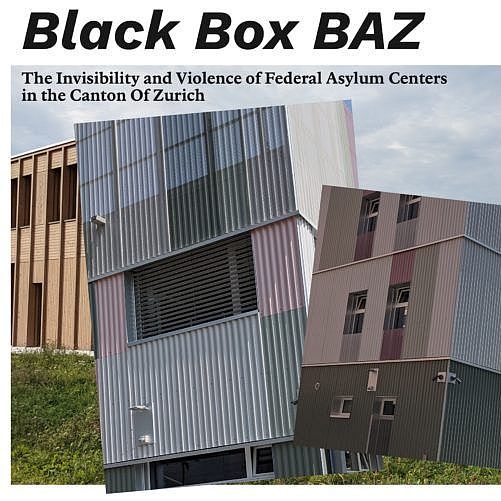Black Box BAZ - The Invisibility and Violence of Federal Asylum Centers in the Canton Of Zurich

Alessandro Rearte | Master Thesis, 2020
This thesis delves into the lived experiences connected to the federal asylum centers BAZ Embrach and BAZ Zürich as encountered by the author in his activities related to organized solidarity and research. Since their existence, the centers have garnered increased public interest after incidents of violence and other human rights violences surfaced. Alongside a complex apparatus of laws and rules, immediate tactics, spatial separation and exploitation of existing societal borders, these experiences connected to the federal asylum centers are rendered invisible and intelligible on the one hand, and amplified for the purpose of political mobilization on the other, which enables their daily reproduction. This daily and oftentimes intelligible reproduction is loosely characterized and criticized as structural violence. The author critically examines the claim of structural violence by questioning the forces, discourses, and logics that intersect at the core of the institutional apparatus and how they have shaped it throughout history. Incorporating evidence and accounts from a multi-sited and multi-method ethnography informed by the researcher's experiences in border struggles across Europe, this thesis elucidates the conditions that enable violence and immobilize venues, voices and notions that would otherwise render violence apprehensible. To achieve this, the author draws from the concept of colonialism without colonies and racism without race to establish how the validity of racialized individuals is determined in regards to an an imagined and continuously renegotiated White standard. Building on this theoretical framework, the author offers an extensive exploration of the ways in which racialized histories of decision-making, discourses, and biopolitical arrangements naturalize violent experiences of asylum-seeking in the Swiss border regime. The thesis thus argues that federal asylum centers operate within a historically contingent carceral regime of biopolitical management that serve as state institutions for controlling deterritorialized state borders and as technologies for societal ordering. Furthermore, it demonstrates that borders are places of separation and ordering while also being places of encounter and resistance where the authors highlights prefigurations of the social relations that challenge present violent social orders and offer less state-centered narratives through which asylum and migration can be told.
